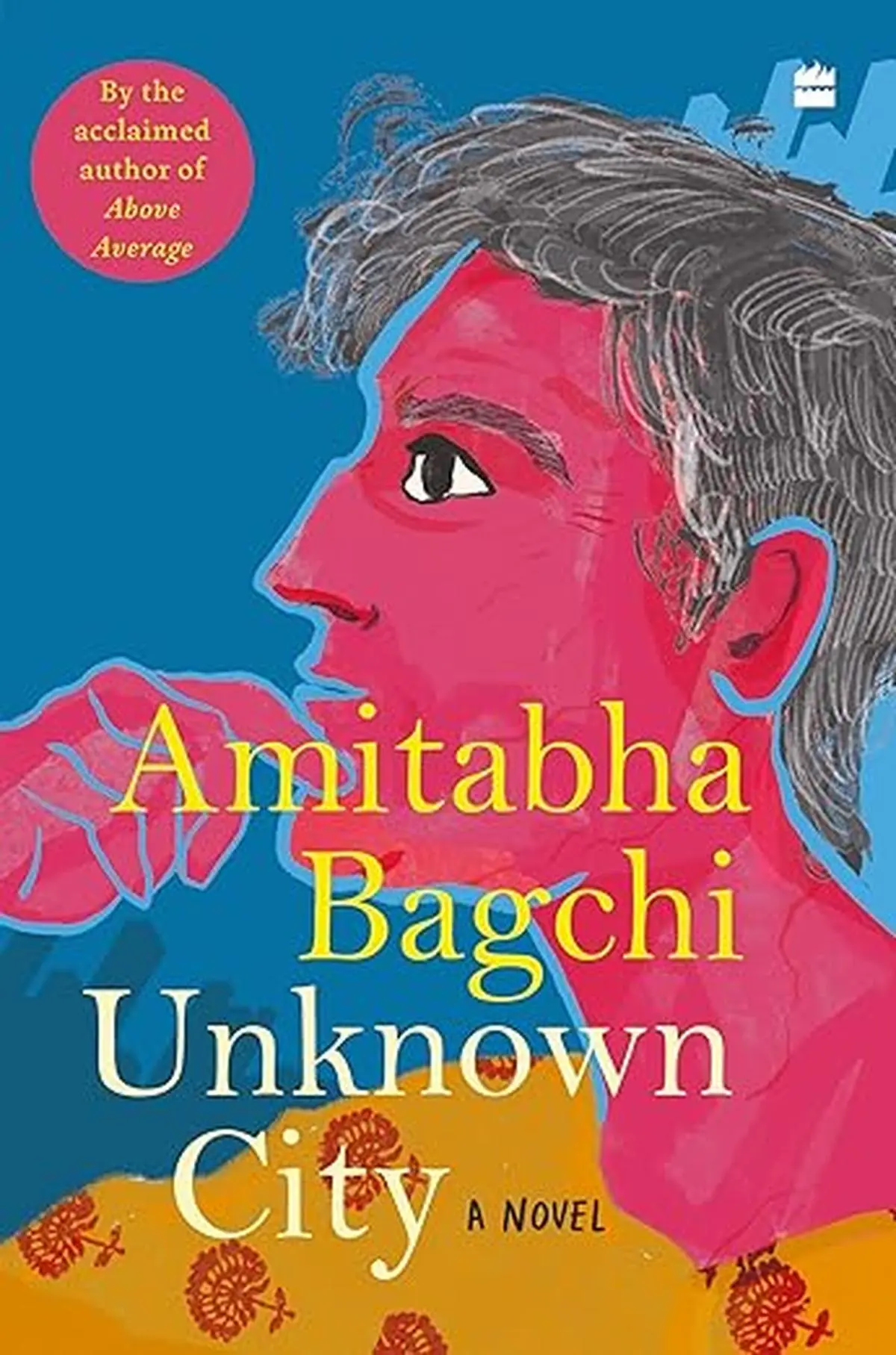On the second page of Above Average, the first of Amitabha Bagchi’s five novels to date, the narrator Arindam Chatterjee leaps forward from his narration, linking a moment as it happens to its memorialisation in an email several years later. A friend named Bagga comments on the colour of the ink that Arindam is using in class, and the next sentence goes: “Several years later I will get an email from Bagga saying he remembers the strange ink I used back in Study Circle.”
In Unknown City, Bagchi’s latest novel and a sequel to Above Average (it can be read independently with no loss in pleasure), emails are mentioned, although in a different sense. They are not hat-tips to memory here but signifiers of forgetting and distortion. The past they encapsulate and re-present can be striking to Arindam, who is once again our narrator, simply because it has been remembered differently or was completely forgotten.
Unknown City
By Amitabha Bagchi
HarperCollins India
Pages:332
Price: Rs.599
The email archive becomes, in fact, a significant tool for this retelling project, one that wants to be as clear-sighted as possible in exploring the question of “‘what was I like, then”. This utility also derives from Bagchi’s framing (and Arindam’s too, for he is writing the novel we are reading): the writing is taking place in 2024, with Arindam Chatterjee entering his 50s, and the period he is concerned with is more than 20 years in the past. This period, roughly 1997-2005, following Arindam’s IIT Delhi years, can be termed as his America years: PhD plus postdoc and a few failed romantic relationships, some more important than others. To speak reductively: Unknown City is about these relationships.
Also Read | Remembrance of things past
The most significant of these relationships, the one that is the impetus behind Arindam’s explorations and becomes the novel’s recurring concern for much of its length, is one he had with a woman named Supriya. In the novel’s very first pulse, after going through his email exchanges with Supriya during what he calls their relationship’s “pre-history” (1997-1999), Arindam the IITian meditates on how his interest in Supriya was grounded in her being a JNU MPhil history student, which “lined up with [his] own conception of [his] place in the world”—that of an IITian who was making IITian choices but did not identify with IIT culture, which he calls a “sexist and conservative nursery”. Arindam notes—decades too late, he will readily admit—that this left no space for understanding what Supriya really was, and whether she identified with dominant JNU culture—“progressive to the core”—at all.
Acuity in attention
Soon enough, the IIT-JNU polarity gives way to another polarity, one that becomes more central to the novel, “that she was a woman and [he] a man”. Gender theory provides Arindam an interpretative lens for the empirical, and an earnestness is added to every inquiry about every relationship with women in the period mentioned. Bagchi thankfully does not let Arindam self-flagellate, though what is truly refreshing here is his pluck in proposing that just as Arindam failed to truly see Supriya (and other women), he, too, might have been all too readily seen as belonging to the typicality of man.

There are many women in Unknown City, and, true to life, the novel’s volume is not evenly divided among them.
| Photo Credit:
By special arrangement
There are many women in Unknown City, and, true to life, the novel’s volume is not evenly divided among them. Bagchi ensures, however, that there is acuity in the novelistic attention paid to each person. Many of the novel’s lighter moments and descriptive flourishes are coagulated in its “minor” episodes. It is possible, though, to imagine a reader taxed by the inevitably serial nature of the presentation. In a novel with minimal dialogue and large paragraphs of telling, this reader may also occasionally hanker for the women’s voices—polyphony and perspectival range being à la mode in the Indian novel in English. But this hankering would be a misreading of the novel’s aims and purposes.
Gendered lives
Bagchi’s project in Unknown City is, in fact, a tricky one for the male writer today: to show a reassessment of youth and love life aided with a mid-life awareness that all lives are “gendered” and that one was, often, too self-absorbed or blinkered. It is tricky, firstly, because it is a project of diagnoses and regrets: to discover oneself as largely belonging to one’s type and realising that to be individuated in that life is possible only now, when the time for that life has passed.
“Bagchi’s project in Unknown City is, in fact, a tricky one for the male writer today: to show a reassessment of youth and love life aided with a mid-life awareness that all lives are “gendered”, and that one was, often, too self-absorbed or blinkered.”
But it is tricky also because there is reason to be chary about the self-discovery narratives of cis-het men. Although it does not mention it, Unknown City is clearly a MeToo-informed novel, aware of how the slangy categories of grown child, raja beta, f**kboi et al are more on point than off.
Also Read | The past in pieces
Bagchi, inarguably one of our finest novelists, shows that all that navigation requires is a compass of earnestness. About a third of the way into the novel, he has Arindam state the objective of his search, and, indeed, the novel’s heart, in the clearest terms: “…the space that I am looking for is not a space in which I deny the blame that is my share, but a space in which moral action becomes possible for me ….” For Arindam, seeking this possibility requires understanding oneself as fully as possible and accepting the warts and blemishes that show themselves, so much so that the idea of a man’s “coming of age” as lifelong acquires a salubrious tint.
Literature, Bagchi would seem to suggest, is not the place to be chary.
Tanuj Solanki is the author, most recently, of the novel, Manjhi’s Mayhem.
Source:https://frontline.thehindu.com/books/unknown-city-book-review-bagchi-gender-memory/article69566663.ece

